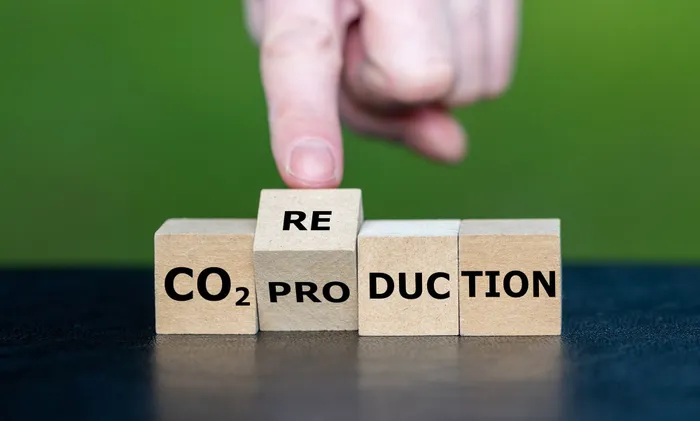Local exporters face looming carbon levy

South Africa’s key industrial exporters have little leg room to wriggle out of the looming Carbon Border Adjustment Mechanism (CBAM) levy.
Industries such as iron and steel sector, aluminium, cement, fertiliser, hydrogen and electricity sectors will be affected among others.
Industry sees the levy as part of green protectionism, through trade-related climate change response measures, such as border carbon adjustment, or other non-tariff barriers, that are becoming more prevalent internationally in exports markets of the European Union, US, United Kingdom, Australia, Canada and Japan, among others.
Analysts caution that the global transition to sustainable development is under way and strengthening.
While green protectionist measures, like CBAM, from a Global South perspective are seen as unjust as they place additional burden on struggling economies or companies as they are part of a new reality that has to be dealt with.
At a recent webinar, “Implications and impacts of CBAM on South Africa and the continent”, Gaylor Montmasson-Clair, a senior economist Trade & Industrial Policy Strategies (TIPS), said the transition to a sustainable development pathway was all encompassing, cutting across all spheres of government and policy.
“From a trade and industrial perspective, it has implications on the composition and dynamics of entire value chains, it has a bearing on competitiveness, trade performance and industrial and economic development,” he said.
Hendrik de Villiers, Hulamin’s head of Environmental Sustainability, said measuring greenhouse gas (GHG) emissions had a major impact for Hulamin since it produced products that fell into nine different categories as specified by the European Union for CBAM reporting purposes.
Hulamin also supplied a variety of product variations within those nine categories, both for export and local consumption.
This meant that the energy consumption and source of aluminium inputs used for each ingot produced and each coil processed had to be measured individually during each process step, so that reporting of exactly what was shipped to its customers could be done accurately.
“Tracking metal inputs and measuring energy consumption across more than 50 processes and accurately allocating it to a specific ingot/coil produced, with approximately 1500 ingots/coils in process at any given moment, implies a vast infrastructure of power, gas and other meters connected to live metal tracking and process monitoring systems,” De Villiers said.
Dipak Patel, the head of Climate Finance and Innovation at the Presidential Climate Commission (PCC), said Unctad estimated a decline in exports to the EU of up to 5.6% in a scenario where an $88 per ton carbon tax prevailed, creating a loss in real incomes for developing countries of $5.9 billion (R110bn) offset by a gain of $2.5bn in the developed world.
The EU represents more than 30% of the demand for CBAM regulated exported products and is one of South Africa’s largest trading partners, representing 19% of exports.
“Our study showed that based on a carbon price of $100/ton in the EU, exporters in these sectors could expect a decline in exports relative to a baseline with no CBAM of up to 10% per annum. Based on 2022 export levels, this would have amounted to a decline in export revenue of as much as R3.5bn.
Patel said, “Over time the introduction of CBAMs both in the EU and around the world will impose additional costs on exporters, which cannot be adequately mitigated by our efforts to decarbonise within the time periods provided.”
He said in addition to the loss revenues from falling exports to the EU, EU demand for imported steel and aluminium might contract forcing exporters to find alternate markets which too were likely have less stringent climate regulation, notably in Africa, undermining South African exporters’ opportunities.
BUSINESS REPORT